
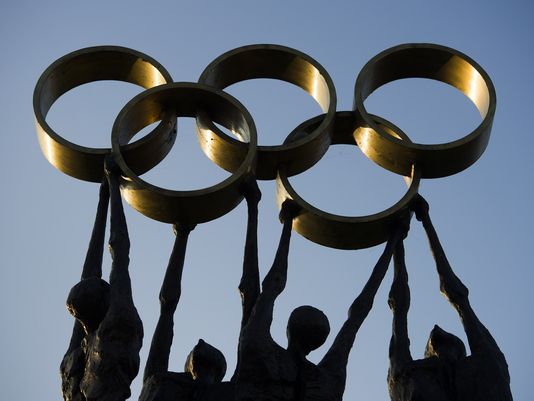
The Olympic Gamble Arrives…



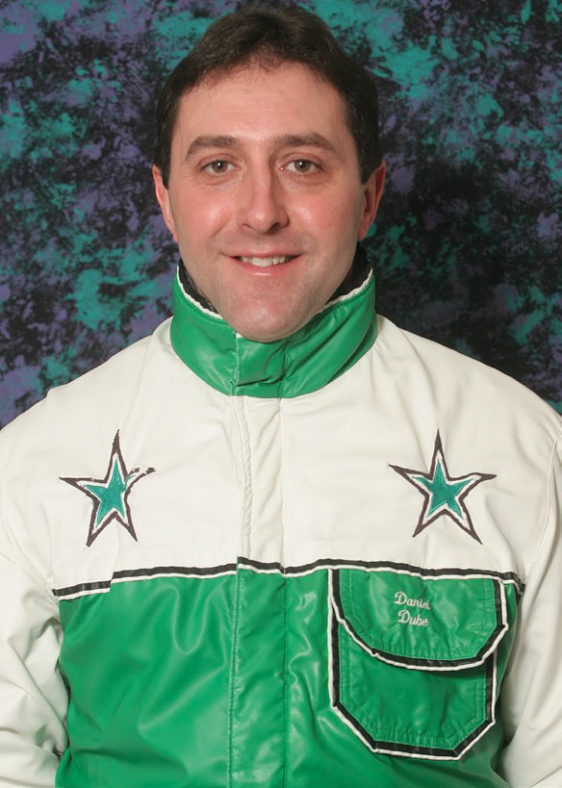
Harness Racing Jockey Hits Milestone
By Frank Scandale @FScandale
Profile: Daniel Dube
Occupation: Harness driver
Born: 06/08/1969
Birthplace: Quebec
Resides: Millstone, NJ
Height: 5 feet 7 inches
Colors: Green-White-Black
When you reach a key milestone in your racing career, how do you motivate yourself for the rest of the rides?
Dan Dube, a French-Canadian harness racer who has been racing at Yonkers Raceway in New York this winter, now has the answer to that question as he reached a coveted 8,000-career victory plateau at the end of February.
“You always do your best. It is fun to win races. But when you are young, you want to just win races, but when you get a little older, you see the purses and that helps push you,” Dube answered with laughter.
Dube, now 45, He doesn’t discount that 10,000 wins are possible. “Yes, having a good purse, that is certainly motivation. But all the races are special.”
Taking time out in between races this week, Dube spoke briefly about his career, saying he started racing as a teenager, maybe 13 or 14 years old, having been trained by his driver-trainer father, Leo. When he turned 18, he joined the professional ranks and has not looked back since. Six years after he began in 1993,he won trainer and driver of the year awards at Hippodrome de Quebec and the Roger White trophy as the outstanding trainer in the province of Quebec. Dube continued to add awards, including in 1999 when he captured his first driving titles in the United States as he was the leader at the now-defunct Garden State Park in Cherry Hill, NJ, in both wins and earnings and was the top driver at Yonkers.
He reached his 8,000th win on Thursday night, Feb. 26, when the temperature was a relatively balmy 21 degrees, compared to some single-digit temps earlier last month.
He achieved the half-mile oval win behind a pacer named Clem in the eighth race of the evening, leading wire to wire, stopping the clock at 1:56 and rewarding his backers with a handsome $22.60 win mutual for a $2 bet in 1:56, and rewarding his backers with a $22.60 win mutual for a $2 wager.
Dube plays down his win total.
“I don’t really look at (the numbers),” Dube said. “I don’t put any pressure on myself. I’m happy the season has gone well so far.”
He is also on the outskirts of $95 million career purses, and is best known as the primary driver for two Harness Horses of the Year – Gallo Blue Chip (2000) and Rock N Roll Heaven (2010). Dube may not look at the numbers, but he is indeed a big numbers man.
Proving that motivation theory, Dube stayed hot at Yonkers by winning five more races just days after his benchmark 8,000 wins.
With the wins, Dube joined 27 others who have cracked the 8,000-win mark in their careers. He has a long way to go to catch the all-time race leader David Palone, who has racked up 16,890 wins in his career. Only one other driver, Herve Filion, has collected more than 15,000 wins.

Artificial intelligence experts said they have developed a computer card shark that plays poker almost perfectly, having mastered a version of a popular game called Texas Hold ’em.
While playful at heart, their advance in the computational mathematics of game theory may lead to broader innovations in military strategy, national security, medical decision-making, complex contract negotiations and auctions, experts said.
The basic poker game “has been essentially solved,” said Tuomas Sandholm, director of the Electronic Marketplaces Laboratory at Carnegie Mellon University in Pittsburgh, whose own poker-playing program won a 2014 world championship. He wasn’t involved in the project. “This is a breakthrough.”
In recent years, high-powered computer programs have outmatched top human players in chess, checkers, Scrabble and the quiz game Jeopardy, but the uncertainties of poker—where so much information about the state of play is hidden—until now had defied the efforts of dozens of research teams.
 ALBANY – Revenue for New York lottery games and its nine video-lottery facilities dropped 2 percent last year compared with 2013, state records Wednesday showed.
ALBANY – Revenue for New York lottery games and its nine video-lottery facilities dropped 2 percent last year compared with 2013, state records Wednesday showed.
Lottery revenue fell from nearly $9.3 billion to slightly less than $9.1 billion, a decline of $188 million, the state said. It’s the first year-over-year decline in several years.
The biggest hit was the lack of a major Powerball jackpot last year, leading to sales in New York for the multi-state game to fall off 44 percent, a decline of $217 million, according to the state Gaming Commission, which oversees the lottery.
for more on this story please see source at: http://www.lohud.com/story/news/politics/albany-watch/2015/02/04/ny-lottery-revenue-fell/22899719/?utm_source=dlvr.it&utm_medium=twitter
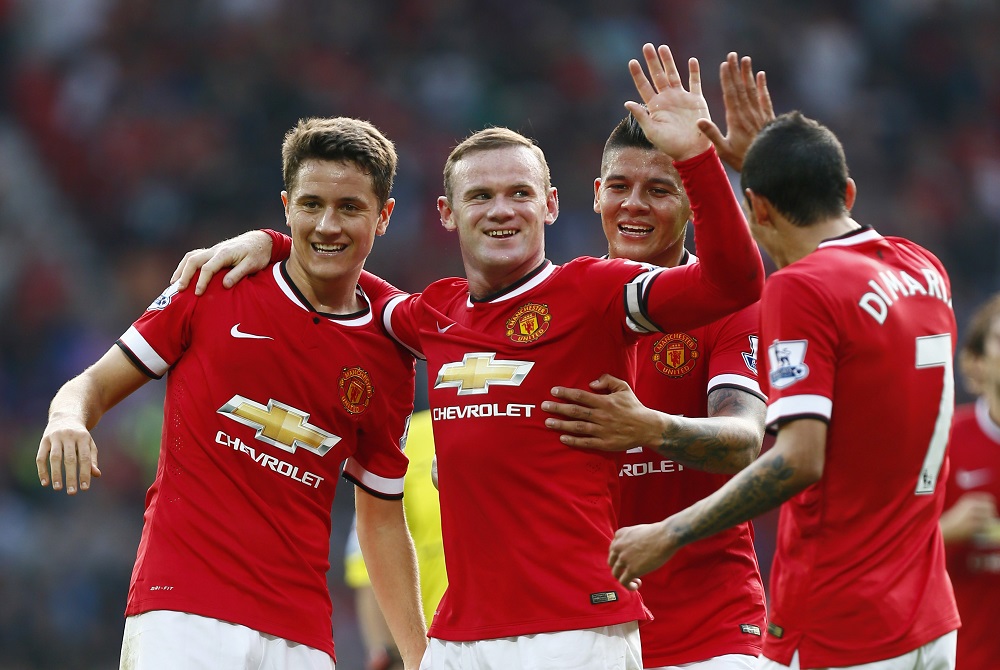

Machester United Launches Branded Casino Games
A range of social casino games will be launched as part of the partnership, using United branding, including their logo and imagery.
KamaGames is a global developer and publisher of social games for mobile platforms, online, Steam, Xbox Live and PlayStation networks and claim to reach over 70 million users worldwide.
Richard Arnold, United group managing director, commented on the partnership: “Manchester United is lucky enough to have a huge global following and we understand the importance of engaging with and entertaining our fans.
“KamaGames and their innovative products will allow us to do this in new and exciting ways.”
KamaGames CEO, Danny Hammett, added: “KamaGames and Manchester United share a similar worldwide audience and, with this in mind, we are confident that the partnership will be a huge success for both organisations.
“We are proud and honoured to be associated with such a great team and iconic brand, and we look forward to building a strong relationship with the club and its fans.”
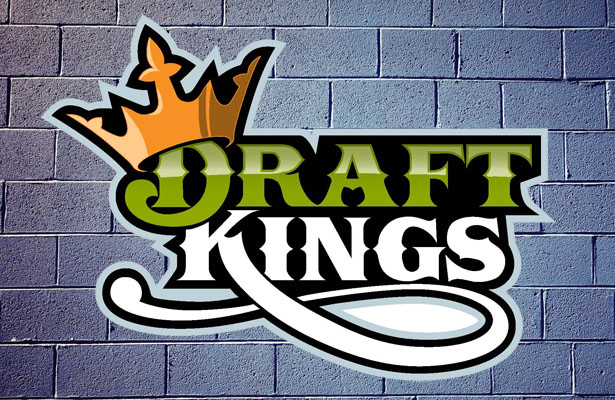
US-based fantasy sports operator DraftKings has further expanded its presence in the North American NBA basketball market after it entered into a partnership with the Minnesota Timberwolves.
Under the deal, the terms of which were not disclosed, DraftKings will become a presenting sponsor of the franchise’s TimberWolves Team Stats social media feature and the WolvesCast official team podcasts.
DraftKings will also benefit from a branding presence on digital courtside and basket stanchion signage during the team’s games at its Target Center home.
In addition, the operator will have a presence on the franchise’s official website and will activate a range of social media promotions in partnership with the team.
DraftKings will also introduce new ‘Live Like a King’ fan sweepstakes that will give supporters the chance to win VIP tickets to home matches as well as transport to and from the game, a custom team jersey, pre-match dinner, a pre-game bench sit and a centre court photo opportunity.
“Fantasy sports gaming is a huge and rapidly growing industry and is something that many of our fans are interested and engaged in,” Timberwolves senior vice-president and chief revenue officer Ryan Tanke said.
“This partnership and industry category opens up some great new opportunities to further connect and engage with our fans.”
Paul Liberman, co-founder of DraftKings, added: “We want daily fantasy sports to engage and electrify fans, and we’re looking forward to making that happen for Timberwolves fans by providing them with unique experiences and new ways to interact with the sport.”
The agreement marks DraftKings’ fourth partnership in the NBA, having already entered into similar deals with the Houston Rockets, Philadelphia 76ers and Boston Celtics.
The operator has also established relationships with North American NHL ice hockey league as well as NFL American football teams the Denver Broncos and the New England Patriots.
With both powerful men calling for expanded legalized sports gambling, NBA Commissioner Adam Silver is inviting New Jersey Gov. Chris Christie to join him in lobbying Congress to rewrite federal laws on the subject.
The NBA and the other major professional sports leagues are actually fighting New Jersey in court to enforce a federal ban on most sports betting outside of Nevada. That law has been in place for more than two decades.
“Governor Christie, and I’m happy to join him, should turn his attention to Washington, DC, to Congress, and say, ‘Here are all the reasons it should be regulated, but let’s come up with a framework that makes sense on a national basis presumably that would allow states to opt in,’ ” Silver told ESPN’s Andy Katz.
Silver broke with his fellow American sports commissioners last month by endorsing expanded legal sports gambling in a New York Times op-ed. He told Katz that his intention was to “break the ice” to have a real conversation on the subject.
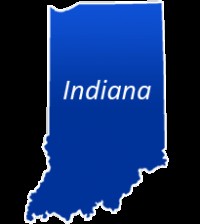
An Indiana legislator, State Representative Alan Morrison (R-Terre-Haute), has introduced two bills for consideration. One would legalize sports betting and the other would legalize Daily Fantasy Sports in the state.
“Gaming is something that this state has become extremely reliant upon, that revenue,” Morrison told the local Indy Star. “As it’s been trending down, it’s incumbent upon us to figure out how to fix it or to improve on what we have.”
The expanded gaming options proposed by Morrison would certainly act as a lifeline for Indiana’s declining gaming industry. However, his proposals will have to compete with more traditional “fixes” that have been talked about, including adding table games to the state’s racinos and moving the riverboat casinos onto dry land.
Sharp revenue decline
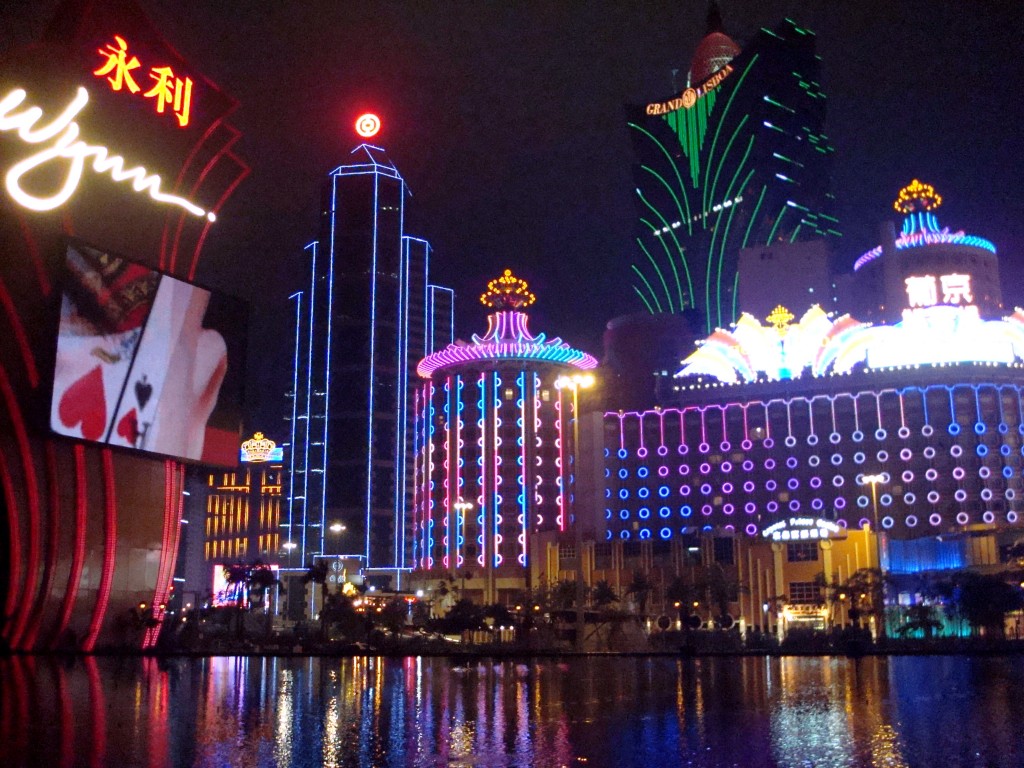
The gaming at Las Vegas Strip peaked in 2007 with revenues of $6.83 billion. However, the figure declined to $5.55 billion in 2009. This can be attributed to the economic recession and consequent fall in consumer discretionary spending. The casino industry at the Strip was worst hit by the economic slowdown and it has still been unable to reach the pre-recession levels. Gaming in the region started to rebound since 2010 and the revenues grew to $6.50 billion in 2013. While this has led to a steady revenue growth for casino operators such as Wynn Resorts, Las Vegas Sands and MGM Resorts, the industry is experiencing change. We wonder if the Strip can see any significant growth in the coming years as other states have legalized the casinos, providing gamblers with plenty of alternatives. On the other hand, Macau has seen a rapid growth in gaming over the past few years and we believe it will continue to drive growth for casino operators in the coming years. Also, Japan could offer a big opportunity for the casino operators to expand in East Asia. On that note, we discuss below these three markets from gaming prospective and how is Wynn is expanding its casino operations.
Slower Growth At The Las Vegas Strip Gaming Market
Las Vegas Sands has two propertieson the Strip, The Venetian Las Vegas and The Palazzo. The casinos have a combined gaming space of 225,000 square feet. The casino revenues from these properties have increased from $431 million in 2011 to $584 million in 2013. Wynn Resorts also operates two properties in the region, Wynn Las Vegas Resort and Encore. These properties have 230 table games and 1,854 slot machines in 184,000 square feet of gaming area. The company’s Las Vegas casino revenues have increased from $534 million in 2010 to $683 million in 2013.
Looking at MGM Resorts, it operates 15 owned resorts in the U.S. The company offers more than 22,000 slots and 1,000 gaming tables in the region (excluding the slots and tables in JVs). Like other casino operators, MGM has also seen similar growth over the past few years with revenues increasing from $2.48 billion in 2010 to $2.60 billion in 2013.
However, the growth rate at the Las Vegas Strip has been much lower than the world’s largest gambling hub, Macau, which has seen gaming revenues increasing from $24 billion in 2010 to $44 billion in 2014. Las Vegas Sands and MGM have also seen their Macau casino revenues double over the past few years.
There are various reasons why Las Vegas Strip witnessed a slow growth over the past few years. As disposable income declined during the economic crisis, it hit the Strip harder. Meanwhile, other states legalized casinos, which further weighed over the casinos in Nevada. For instance, Pennsylvania legalized table games like poker and blackjack at casinos in a move to generate higher revenues. Similarly, the Delaware senate also passed a bill to allow table games. This had an adverse effect on the number of tourists visiting Las Vegas for gaming activities and we believe this trend will continue in the coming years. Thus, it does not make much sense for these three casino operators to expand in Nevada and accordingly they are bidding to build casinos in other states.
In September 2014, Wynn won the bid to build a casino resort just outside Boston. The company will build a $1.6 billion resort, which is expected to open in late 2017. Massachusetts Gaming Commission picked Wynn over Mohegan Sun primarily due to better paying jobs and Wynn’s plan to clean up the former industrial land at the development site. This is the third gaming license issued by the MGC. Earlier, it approved MGM’s casino in Springfield, and a Penn National Gaming slots parlor near the Rhode Island border. Wynn plans to develop an integrated casino resort at the 37-acre site on the Mystic River. The resort will comprise of a 500 luxury-room hotel, 140,000 square feet of retail space, eight restaurants, a 12,000 square feet nightclub, a five star spa, 150 table games and 3,000 slot machines.
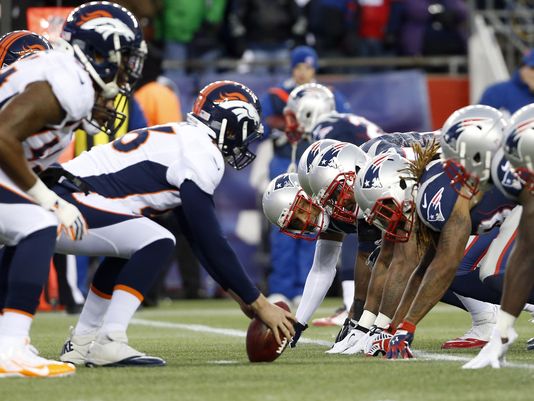
Bud Selig once tried to warn the world about what would happen if legalized sports gambling spread to more states.
Instead of cheering for their favorite teams, the baseball commissioner predicted, fans would be more inclined to cheer for themselves to win money — a factor he said would harm his sport’s character.
“Players would not be viewed by fans as exceptionally skilled and talented competitors but as mere assets to be exploited for ‘fast money,'” Selig wrote in a statement submitted in federal court in 2012.
Two years later, Major League Baseball is singing a drastically different tune — and so are the NFL, NBA and NHL.
After all four leagues issued similar warnings in 2012, each sport is partnered up with two start-up companies whose business model relies on fans trying to make fast money every day based on player performance in games.
It’s called daily fantasy sports. It’s legal in almost every state. And its popularity is starting to soar, especially among young adult males.
But the recent rise in partnerships with this new industry marks a significant pivot point for these leagues that could have major ramifications for the future of American sports, various experts told USA TODAY Sports.
If the deals work the way the leagues hope, daily fantasy sports consumption will have a steroid effect on television revenue, because nobody watches live sports on television quite as intensely as fans with money at stake.
At the same time, such deals have led to conflicting, and certainly evolving, positions on the subject.
— In November, the NBA announced it had become an equity investor in FanDuel, a daily sports fantasy site that says it pays out $10 million in weekly cash prizes. Yet the NBA won’t allow its players or personnel to buy what FanDuel is selling — daily NBA fantasy games that pay out these prizes based on real-life player statistics.
“Our policy is that NBA personnel are prohibited from participating in NBA fantasy leagues that require payment of an entry fee or award prizes to participants,” NBA spokesman Tim Frank told USA TODAY Sports.
A day after the NBA’s FanDuel announcement, NBA Commissioner Adam Silver advocated for legalized sports betting in an editorial in The New York Times.
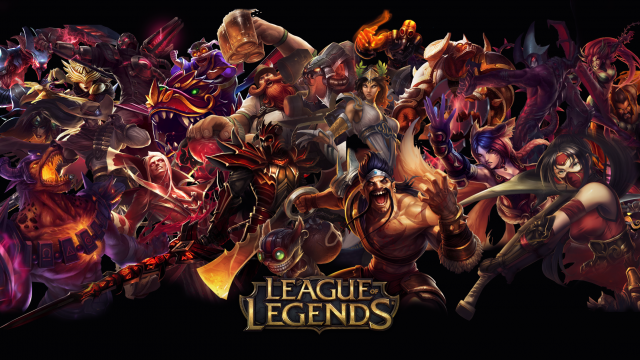
The University of Pikeville has become one of the small number of American institutions of higher learning to add competitive gaming to the list of sports programs they offer scholarships for.
Yahoo! News spoke to coach and alumni Eric VanHoose, as well as Pikeville’s new media director Bruce Parsons, about the program, which plans to offere 20 scholarships for players matriculating in the Fall 2015 semester.
“It will be a regime a lot like athletics,” Parsons said. “[Students will] have to have a certain GPA. We’ll look at them like student athletes. There will be practice time and video time when they have to study other teams for upcoming competitions.”
Presumably players will also be held to certain standards of behavior in game and out, as are many student athletes in traditional sports. At least for their own sakes, if not so that they don’t run afoul of League of Legends‘ community moderators, who have not hesitated to ban professional LoL players for violations of their code of conduct. And, ladies, as a sport, the scholarships must obey Title Nine rules, so apply, apply, apply.
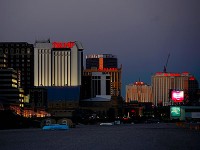
BIG:Y;ears from now (and even today) when U.S. gambling historians examine 2014, they will quickly find that it was a terrible year for Atlantic City.
Four casinos closed, an eighth straight year of decreasing revenue, and an online poker and gambling regime in its first full year that went through considerable growing pains and continues to perform at revenue levels less than expected. The Showboat, Atlantic Club, Trump Plaza and Revel shutdowns put 8,000 employees out of work, while the future of the Trump Taj Mahal remains questionable.
It’s no secret that New Jersey officials are anxious to throw away that 2014 calendar and turn the page to what is expected to be a better year in 2015. How will it be better? Well, to borrow a line from John, Paul, George and Ringo, “it can’t get more worse.”
What can we expect?

Poker entrepreneur Alexandre Dreyfus debuted a number of new ideas and initiatives during 2014.
Dreyfus announced the formation of a professional poker league called the Global Poker League and a companion event dubbed the Global Poker Masters where teams of players compete for their country a la the Ryder Cup.
2014 Also saw the expansion of the long-running European Poker Awards, with the announcement of a second award banquet, the aptly named American Poker Awards. Both award ceremonies will be preceded by the inaugural Global Poker Conferences – another Dreyfus creation.
Dreyfus also unveiled a new news website called PokerToday.us and continued to increase the reach of the Global Poker Index, the Hendon Mob, and the company’s Fantasy Poker leagues.
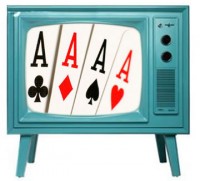

When you see a poker reality show, are you amazed by the amounts of money involved? Does it seem like poker pros must be worth tens of millions of dollars to be playing in $100,000 high roller events and the million dollar One Drop? The most well-known professional players seem to have an infinite amount of money and they don’t seem terribly attached to their cash when you see the prop bets they make in front of television cameras.
We all know that reality shows on television aren’t exactly real. Some are scripted, and others just reward certain behaviors with camera time to encourage those behaviors, and the reality stars learn quickly what will earn them camera time and more money. I like to suspend my disbelief sometimes and forget that Bear Grylls has a camera crew nearby to help him if he needs it, but when it comes to poker on television, I have trouble.
Let’s start with a story
A few years ago I was in Las Vegas with my friend and coauthor Adam Stemple. We were eating at a Subway inside the old O’Shea’s and there were beer pong tables just over a waist-high wall from where we were eating. Of course, we started betting on the participants in the games. How else are we supposed to pass a whole five minutes while we eat our subs? We needed action!
Adam and I are not big gamblers. We’ll lay down a bet here and there, but we aren’t like a lot of poker pros who behave like they hate money on a daily basis. We were betting $10 a shot on the beer pong game, but we were in Vegas to play poker so we each had a few thousand dollars with us.
“Let’s kick the stakes up a notch for the kids,” Adam said.
We’ve been friends a long time. I knew exactly what he meant. When the next shot was a miss, I swore loudly and handed him $500, clearly within the sight line of the competitors. A college girl, couldn’t have been more than 22, came walking over and asked us if were betting on their game. We told her that we were and she asked what the stakes were. When we told her we were betting $500 a shot, she looked like we had just told her that we were betting our lives.
When she returned to take her next turn, she told everyone at the table that we were betting $500 a shot. They looked surprised, but there wasn’t real shock until she made her next shot and Adam handed me back the same $500 I had given him a minute ago. Seeing the hundred dollar bills exchanged had them all wide-eyed. Five bills is a lot of money to a college kid in Vegas for the weekend, trying to get drunk on $30 a night and splitting a hotel room five ways.
We kept this up for a few minutes while we finished our subs, and a couple of the other competitors came over to talk to us. We mostly told them the truth. That we are poker pros in town for a tournament series, that we were betting on their game, and that we would bet on almost anything. What we lied to them about was the stakes we were playing for.
It’s Mostly Harmless
It was not just a harmless lie, it was for their entertainment as well as ours. They had a neat experience in Las Vegas, met a couple big gamblers, and had real money riding on their performance in one of the dumbest games ever invented. They definitely went home with a story to tell their classmates, and they are probably still telling it. Why wouldn’t they, it’s a great story. And everyone who hears it believes that there are people who will bet $500 on the toss of a ping pong ball.
I’m not saying that there aren’t people who would bet $500 on the toss of a ping pong ball into a dirty cup of beer, but I can tell you that it wasn’t happening that night. You can probably guess where I’m going with this. In many cases, the huge games you hear about just aren’t quite as big as they seem.
Is a million dollar buy-in cash game really a million dollar buy-in? Probably. The participants do likely have to put up a million dollars to play. But if they all swap action, then there isn’t really much risk. Even if only three or four of them swap 10% each, it cuts down on variance drastically. And many of those players have backers or have sold a significant amount of action in those games.
If a player sells 75% of his action, and swaps 5% with two other players, then the buy-in is really only $150,000 for him. If he has a backer, or sells all of his action, then he may not have any money invested at all. And what if an investor buys 50% of every player? What if that investor is associated with the television network and is simply cutting the stakes in half so that the players can afford to play. When does it become deceptive?
In my opinion, it’s television. When you watch something on screen, you should know that it can easily be manipulated and that you are only seeing what they have chosen to show you. I know a player who recently played on a poker broadcast who sold action on Facebook. It’s clearly not being kept a big secret, they just don’t mention it on the broadcast. I don’t think it’s wrong, just interesting.
This is reflected in all kinds of things that civilians, people who aren’t serious about poker, believe about our game. They think Antonio Esfandiari has actually won $26,000,000 in tournaments and must have mountains of cash. I’m sure Antonio is doing just fine, but he has basically admitted that he didn’t have all his own action in the One Drop, and estimates of his percentage are as low as 10%.
But I Thought that Guy was Rich?
When you count buy-ins and backing, some of the biggest names in poker who have millions in tournament “winnings” may not even be up significantly. Most of them are way up, and most of them are truly great players, but don’t believe the numbers you read online, they aren’t related to “reality” any more than the things you read about Kim Kardashian in the tabloids or the junk you can watch about ancient aliens on television. Just because someone says it doesn’t mean that it’s true. Even if you watch it happen on television, it doesn’t mean that the money really changed hands in the quantity that the cameras presented.
Is this good for poker? I’m not sure. I know that it keeps people interested, but I think people would be interested in the biggest buy-in events even if the entry fee was only $10,000. That’s a pretty big cash game to me. I also know that it’s not going to change. Selling action is a smart thing for many players, and I often sell action myself. In my bracelet win this summer, I had less than half of my own action.
There are debates about players trading action because it can influence how they play against each other, but there isn’t much to be done about that. Players can trade action without telling anyone and there is simply no way to verify that players don’t have a portion of another player’s action. Other than being conscious of the fact that some players in any major tournament will have traded some action, there is nothing to worry about. Just don’t let yourself be deceived into thinking that all of the numbers you see reflect reality when they may only reflect reality television.


New Jersey Assemblyman and noted anti-online poker advocate Ralph R. Caputo is currently sponsoring a bill (Bill) that would make it illegal for any “Internet gaming affiliate” (Affiliate) to operate in the state without first obtaining a casino license.
It also stipulates that this licensing requirement could not be waved under any circumstances.
If passed, the Bill will remove the streamlined approach currently undertaken within the New Jersey Division of Gaming Enforcement (NJDGE) itself and instead subject Affiliates to the additional scrutiny of the NJ Casino Control Act (Act) and by extension the New Jersey Casino Control Commission (Commission).
The vote to pass the Bill out of the Tourism, Gaming and the Arts Committee was unanimous and it could now go to the full chamber for a vote.
Why Have One Sentence of Regulation When You Can Have Ten Pages Of It?
Currently, affiliates are required to obtain a “Casino Service Industry License” through the NJDGE. Affiliates seeking to partner with land-based casinos must meet the following NJDGE standard to be granted a license:
Q:Personnel/qualifiers must demonstrate good character, honesty, and integrity as well as financial stability, integrity and responsibility. Qualifiers must not have engaged in any conduct that is prohibited by Section 86 of the Casino Control Act.”;
This is a much less onerous burden of proof than the ten pages of regulations which the Commission has for granting a casino license – most of which merely serve as an outline/guide to the myriad of forms and declarations required of applicants.
Additionally, the Bill would add layers of regulatory oversight by keeping the NJDGE in its current role as an investigatory body for applications, while removing its ability to make a final decision on them by transferring that authority into the hands of the Commission itself.
Third Party Software Essential to the Industry
The potential for regulation to be ratcheted up is definitely a cause for concern amongst Affiliates. However, they are not the only ones who will be sweating the Bill as it moves through the legislative process.
Land-based casinos generally have zero background in running online gaming and therefore currently rely on partnerships with experienced Affiliates to successfully enter the market. This Bill threatens to severely complicate (if not entirely destroy) this model, raising the specter of a severing of the link between name-brand properties and Internet customers.
Given that revenues from online gaming have been far below projections, it is unlikely that a casino such as the Borgata will make the investment necessary to remain open if it can no longer easily partner with an experienced Affiliate such as PartyPoker. The much likelier scenario is that it will simply exit the market altogether, forgoing the revenue generated under the current system.
Therefore, the Bill could seriously undermine – if not destroy – the fledgling NJ online poker and gambling industry. That’s why serious opposition to it can be expected from land-based casino interests in the state.
In Case You Didn’t Know There Is This Company Called PokerStars
It seems as though no discussion about the regulation of online poker in the US is complete without at least a tangential reference to the possible return of PokerStars to the market.
Caputo is known to be anti-online gaming generally, but is especially vocal in his condemnation of PokerStars due to the indictments facing former owner Isai Scheinberg.
It is therefore likely that his sponsorship of this Bill is primarily aimed at ensuring PokerStars does not have a backdoor into the NJ market that would allow the company’s previous run-ins with the US Department of Justice (DOJ) to be downplayed or forgotten.
Interesting to note on this point is that by requiring Affiliates to apply for a casino license, the Bill would also subject them to a provision of the Act which says the Commission may consider “undue economic concentration in Atlantic City casino operations.”
Given the fact that four Atlantic City casinos have already shuttered their doors this year alone, this provision could theoretically be used as a “fail-safe” to ensure that even if PokerStars could successfully argue its sale purged the company of the taint of illegality, grounds for denying it a license without facing a serious court challenge would still exist.
Whether or not that is a deliberate calculation on Caputo’s part or just a coincidence remains to be seen.
The Waiting Game
The casino properties in the state have as much interest in running an online card room as 888 has in operating an Atlantic City casino. The relationship between land-based and online gaming providers is a mutually beneficial one that the industry will fight very hard to preserve.
While the Bill has only passed out of committee, it is still something that will be closely watched by the industry and the poker community.


The New Jersey legislature is in the process of taking aggressive measures to help save struggling Atlantic City and possibly prevent a fifth casino from closing this year. On Monday, a state senate panel acted on a group of bills that have the potential to give Atlantic City casinos a needed financial boost and possibly save the Trump Taj Mahal from closure.
Atlantic City has seen four casinos close in 2014 and the Taj is scheduled to close on December 20. At present, approximately 9,000 jobs have been lost in connection with casino closures. The closure of the Taj would add at least 3,000 more to that total.
Tax Stabilization Act Would Guarantee Tax Revenue to the City
Perhaps the most important of the five bills is S2572, the Casino Property Taxation Stabilization Act. This bill would allow casinos to make flat payments of $150 million over the next two years instead of paying property taxes. After the initial two-year period, taxes would then be based on gaming revenue in the city. Tax payments could be as low as $75 or as high as $165 million. This system would be in place for at least 13 years.
For those thinking this looks similar to Carl Icahn’s plan for the Trump Taj, you would be correct. Icahn had asked for a similar tax break for the Taj from city administrators but was subsequently denied. This bill would not just benefit the Taj, but all casinos in Atlantic City.
Bills Would Look After Full-Time Employees
One of the reasons that Icahn encountered resistance in his quest for state aid was his desire to terminate union employee health care and pensions at the Taj. While he has backed off from that position, the legislature is making sure a similar fiasco doesn’t happen in the future.
Under S2583, licensed casinos would be required to give full-time employees a “baseline health care and retirement package.” This bill would seem to cover all full-time employees, and not just union employees.
Unite-HERE has yet to act on Icahn’s request for the union to drop their appeal of a bankruptcy judge’s ruling that the Taj could eliminate health care and pension payments to union employees. Icahn later decided that he would reinstate health care and provide partial pension payments to employees provided they drop their appeal.
Legislation Could Save the Taj
The odds of the Taj seem to be improving by the day and the passage of these bills may be enough to guarantee the casino’s continued operation. Major Don Guardian told the Senate committee that, “I do believe this legislation is going to save the Taj from closing.” Considering that S2572 would give Icahn at least part of what he needed to keep the casino open, Guardian believes Icahn will proceed with his plan to invest $100 million into the property.
Senate President Stephen Sweeney supports the bills and is focused on stabilizing the Atlantic City economy. Right now, between 8,000 and 9,000 people are without jobs thanks to the casino closures and up to another 5,000 are facing similar prospects. The most important thing right now, according to Sweeney, is to right the sinking ship that is Atlantic City.


2015 is shaping up to be a big year for online gaming. California and Pennsylvania will revisit their online gambling bills; several other states are also likely to look into iGaming; sports betting will continue to be a hot topic in New Jersey and perhaps beyond; and the Daily Fantasy Sports industry continues to grow by leaps and bounds.
With this in mind, I’ve compiled a list of Twitter personalities that anyone interested in poker, gambling, gaming, and Fantasy Sports should follow.
Before I get started, let me point out that there is no doubt in my mind I overlooked some deserving people on this list, but the great thing about Twitter is the connectivity, so the people I have overlooked will become apparent simply by following the people listed below.
Victor Rocha @VictorRocha1 – 2015 is going to be all about the bass… I mean California (sorry, that song is catchy) and there is nobody with their finger on the pulse of the gaming industry and tribal interests in the Golden State more than Pechanga.com editor Victor Rocha. Rocha’s Twitter feed is full of relevant links to gaming and tribal stories as well as Rocha’s own thoughts on a variety of topics.
Chris Grove @OPReport – Analysis, data, and informed commentary are the hallmark of the OnlinePokerReport.com Editor’s Twitter account. In addition to his insightful tweets, you’ll also be following the best live-tweeter in the business.
Adam Krejcik @akrejcik – An Eilers Research Analyst, Krejcik is one of the Internet’s go-to sources for Daily Fantasy Sports news and information (what do you mean you’re not following DFS, it’s all the rage), as well as offering up his insights into the iPoker and iGaming industries.
Chris Krafcik @ckrafcik – The top man (North American Research Director) at one of the top iGaming news outlets (Gambling Compliance) is a must follow. Krafcik is not the most prolific tweeter in the world, but when he does tweet it’s often information no one else is privy to.
Adam Small @A damLoebSmall – The PocketFives.com cofounder provides excellent insight on a variety of iGaming and poker issues. Small is a regular contributor to Twitter discussions on just about any topic that happens to capture his interest.
John Mehaffey @John_Mehaffey – The longtime poker industry columnist is a fountain of information on the industry as well as the local Las Vegas gambling scene, to the point that it sometimes seems like he has a mental database of the location of every gaming machine and table in Clark County.
Alun @Poker_Hack – A leading poker industry authority (and the Head of Content at Pageant Gaming Media) with a unique and varied perspective on the industry; he can also lay claim to one of the best Twitter snark games going; oh, and he hates semicolons.
_Tizzle @_Tizzle – A true poker industry insider (Tizzle is one of the minds behind PokerTracker), with strong insights and opinions, an incredible rolodex, and a very refined palate – _Tizzle is the go-to authority for fine dining in the poker community.
Alex Weldon @benefactumgames – A new columnist in the poker industry over at PartTimePoker, Alex is a really strong player and as a board game designer is able to dissect promotions and games like few others. His premiere column which included an adjustable fish to shark ecology model put him on the map and he’s been churning out good content ever since.
Marco Valerio @AgentMarco – The former QuadJacks presenter and interviewer extraordinaire has moved on to a larger role in the iGaming world. Marco is well-connected, covers all aspects of gaming, and filled with just the right amount of wanderlust (is there a conference he doesn’t attend?).
Kim Lund @InfiniteEdgeKim – While most of the people on this list advocate for expansion, consultant and longtime industry man Kim Lund focuses on an ancillary aspect of the gaming industry, as he continues to beat the drum for improved ecologies.
Robert DellaFave @DivergentGames – Somewhere between a commentator and an analyst, DellaFave is one of the top reporters in iGaming, with his work featured at a number of prominent sites. DellaFave has a keen eye for the analytics of the industry and often breaks down data from traffic reports to tournament series.
Roger Gros @GlobalGamingBiz – Along with California, another big story in 2015 will almost certainly be the continued remaking of Atlantic City and potential sports betting legalization in the state. So if you’re not following Global Gaming Biz’s Roger Gros for your New Jersey information, you’re doing it wrong.
Michelle Minton @MichelleMinton – Michelle offers up a libertarian point of view to the legalization discussion, and does so in a very academic way. Minton’s dissection of the 1961 Wire Act was key in pushing back against Sheldon Adelson’s online gambling prohibition efforts. The poker world owes Michelle a debt of gratitude for her research, writing, and diligence on this issue.
Steve Ruddock @SteveRuddock – Hey, that’s me! My Twitter account is full of iGaming links (to my stories and others), some opinions, and the occasionally witty remark.
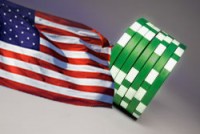

Online gambling opponents will have to wait another day for a federal ban on online poker.
The Restoration of America’s Wire Act (RAWA) — which would overturn a US Department of Justice interpretation limiting the scope of the current prohibition under the current version of the Wire Act law to sports betting — is not attached to the omnibus “must pass” spending bill by Congress.
The development is a major victory for the online gambling industry in the United States.
Fears had been circulating for months that a back room deal similar to the one that saw the Unlawful Internet Gambling Enforcement Act (UIGEA) attached to the omnibus bill in 2006 would happen again.
Although the anti-gambling lobby will undoubtedly continue its efforts in 2015, it will now have to do so by slogging its way through the normal legislative process. This promises to make the debate over the future of American online poker much more robust, open, and transparent.
More Money; More Problems
It appears as though the worst kept secret in Washington these days is that the anti-iGaming lobby is being almost entirely bankrolled by one man: Republican super donor Sheldon Adelson.
Normally, money and politics go hand in hand, especially in the United States where campaign finance regulation is weak. Nevertheless, pushback has begun to ferment at the grassroots level against the idea that one man could have so much influence over what is potentially a billion dollar industry.
Conservative groups especially have voiced strong opposition to the perception that Congress could be bought off by Adelson to craft regulation squashing direct competition to his personal, land-based, gambling empire.
Congressman Ron Paul dedicated an entire op-ed piece to his railing against Adelson’s influence on Capitol Hill and what he labeled “crony capitalism” in its most pure and brazen form.
This political climate appears to have given Republican politicians pause that they risk a serious backlash from their base if they are seen as walking in lock-step with the epitome of special interest money.
State Rights Arguments Also Resonate
In addition to disgust at the money being thrown around, Republican politicians are also hearing from voters in their base who are wondering out-loud why the federal government is even getting involved in regulating online gambling at all.
Land-based casino gambling has always been the prerogative of the sovereign state governments, and many conservatives view the idea of a federal ban as an example of encroachment on the principle of state sovereignty.
Grover Norquist — who is the president of Americans for Tax Reform and one of the most influential figures in conservative politics — has also come out strongly against any federal ban on exactly this point.
States’ rights is an important issue for conservative voters, and so this too seems to have scared off support amongst Republican politicians unwilling to be labeled as going against core political values.
The Best Defense is a Good Offense
The defeat of RAWA in this Congress is welcome news. However, it is only one battle in the larger, ongoing war to avoid the proverbial federal ban-hammer.
The iGaming industry has come a long way since 2006. This recent skirmish with big money validates the efforts of industry advocacy groups such as the Poker Players Alliance and the community in general to step out of the shadows and into the mainstream cultural consciousness of the nation.
Players and operators alike clearly do now have a voice in the halls of power.
Even more encouraging is to see that the issue has now been removed from the simple “pro” vs. “anti” gambling dichotomy and is instead being discussed in the language of the broader American political debate. This is a development that cannot be overstated.
It makes it much less likely — though certainly not impossible — that a federal ban will be able to get through Congress.
Conclusion
Although the omnibus bill can be amended at any time, the high-visibility of the issue in recent weeks makes it unlikely that online gambling legislation will be coming out of Congress until at least 2015.
All eyes will now be on California, as well as the possibility of an interstate compact between Nevada and Delaware. Should these happen, they will cement the industry even further and — given the amount of opposition already present to a federal ban — make it almost impossible to dislodge it.
For that reason, the coming year is shaping up to be the biggest one in the history of US iGaming.
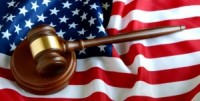

During the height of the FIFA World Cup this summer, members of the FBI raided three villas in Caesars Palace and arrested an array of people under suspicion of running an illegal sports betting operation on the premises. Last week, five of those people were handed their sentences.
Yung Keung Fan, Herman Chun Sang Yeung and Yan Zhang appeared before Nevada U.S. District Judge Andrew Gordon where they pleaded guilty to misdemeanor charges of being an accessory after the fact to the transmission of wagering information. They were each fined $100,000, ordered to give up a further $125,000 in cash and assets, and handed a five-year probation that means they had to leave U.S. soil immediately and not return until their sentence has been served.
Two further defendants were tried separately. Inaugural Big One for One Drop participant Seng Chen ‘Richard’ Yong also received the same $100,000 fine and probationary sentence, but was ordered to forfeit $400,000 in cash and assets. A fifth member, Hui Tang, admitted to playing a more comprehensive role in the enterprise and was handed a $250,000 fine, five-year probationary sentence, and told to stump up $250,000 in cash and assets. A sixth defendant, Wan Kin Yong, saw all charges dropped.
That leaves Paul Phua and Darren Phua to face the gavel. Their attorneys are challenging the legality of the FBI search, which they believe was illegal. If you are unfamiliar with the case, the key argument centers around a plan concocted by the FBI, Caesars Security, and the Internet Service Provider (ISP) to cut off their Internet supply and then send in FBI agents dressed as technical teams so they could gain evidence of wrongdoing.
Phua’s lawyers believe that the warrant was only obtained because of the observations that the dummy technical team made during their visit to the villas, and therefore it should be thrown out of court. Prosecutors are taking the angle that as the ISP only cut off DSL service to the villas, leaving Wi-Fi in tact, meaning the defendants didn’t have to invite the FBI agents into the property.
Prosecutors stated that $13m in profit was created in the short time that the operation was up and running.
The two Phua’s will be sentenced this week.
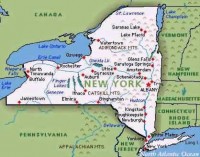

Gambling expansion is coming to the state of New York in the form of four new casinos and today we will likely learn the names that will adorn the entrances to those casinos, as well as the specific locations.
Voters approved the construction of the new land-based gambling establishments last year and the Gaming Facility Location Board has been perusing 16 bids from companies with well-known names such as Churchill Downs, Genting and Caesars. The regions in which the casinos will be placed are already known, while the winning bidders are not — until later.
Three areas have been approved — Albany, Catskill Mountains-Orange County, and near the neighboring state of Pennsylvania. The second of those three is seen as perhaps the jewel of the bunch, Bloomberg reported, as Orange County is about one hour away from New York City and its population of more than eight million.
New York is already home to five casinos run by Indian tribes, as well as nine video slot parlors located at horse racing facilities. The new casinos are expected to co-exist with the land-based gaming operations currently operating.
Following the announcement of the winning bids — a Christmas present of sorts for those chosen — the New York State Gaming Commission must also give their rubber-stamped approval. A likely mere formality, as the Gaming Facility Location Board was specifically set up to handle much of the process.
Online Poker Next?
New York lawmakers took a look at two online poker bills introduced this year. Sen. John Bonacic proposed S 6913 in the spring and Assemblyman J. Gary Pretlow followed with A09509 weeks later.
Both bills aimed to allow games requiring skill to be regulated, while excluding house-banked casino games. Both also cited the need for safeguards that regulation would provide, noting that many New Yorkers play at unregulated sites where protection and safety of funds is questionable.
Two East Coast states have already enacted online poker and gambling legislation — Delaware and New Jersey — and another, Pennsylvania, may be next in line following in-depth research into the possibility. The bills introduced in New York did not gain much traction, but the state is miles ahead of other states who have yet to even consider proposals.
Perhaps after the identities and locations of the winning casino bidders are named and construction is underway, online poker regulation can be debated with greater intensity. New York is the third largest state in terms of population and would be much-welcomed as a regulated state by online poker and gambling activists.